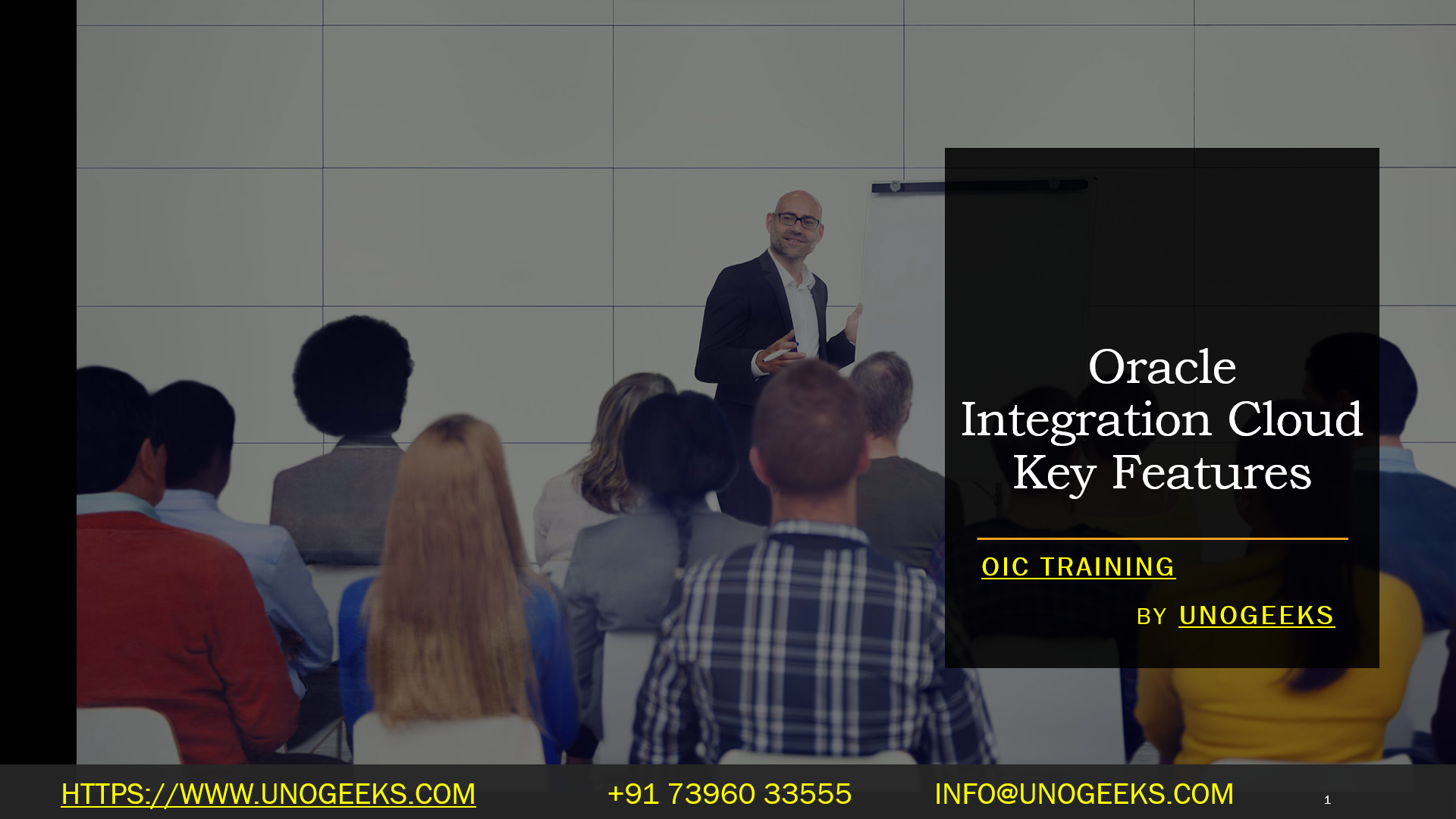Oracle Integration Cloud Key Features
Oracle Integration Cloud (OIC) is a suite of services designed to help businesses connect their cloud and on-premises applications, automate their processes, and create applications that leverage Oracle’s other offerings. Some of the key features include:
Integration and Connectivity:
- Pre-built connectors: Offers pre-built integrations for various Oracle and third-party applications, enabling quick and seamless connectivity.
- Adapters: Provides adapters to enable connection to various databases, protocols, and industry standards.
- Integration Designer: Drag-and-drop designer to facilitate creating complex integrations without the need for coding.
Process Automation:
- Visual Development Environment: Enables the creation of end-to-end business processes using visual tools.
- Case Management: Provides flexible control for managing complex processes that require human intervention.
- Real-time Monitoring and Analytics: Helps in tracking and managing performance metrics, providing visibility and control over processes.
API Management:
- API Creation: Easy creation and deployment of APIs for various services and applications.
- API Gateway: Securely manage and monitor APIs and control access and usage.
- API Catalog: A centralized repository for API discovery, registration, and documentation.
Data Mapping and Transformation:
- Visual Mapping: Allows you to define data mappings between different data formats visually.
- Transformation: Offers capabilities to transform data from one format to another using built-in libraries and functions.
Security and Compliance:
- Identity Propagation: Supports security policies including OAuth and SAML.
- Compliance: Facilitates adherence to various regulatory standards.
Event-Driven Architecture:
- Event Handling: Provides support for handling complex event processing, enabling real-time reactions to business events.
Artificial Intelligence (AI) and Machine Learning (ML) Integration:
- AI Integration: Leverages Oracle’s AI capabilities to provide intelligent automation and predictions.
- Machine Learning Models: Allows the embedding of machine learning models for predictive analysis.
Monitoring and Management:
- Real-time Monitoring: Offers real-time insight into integrations, process executions, and API usage.
- Alerts and Notifications: Provides timely notifications about issues and failures, enhancing the troubleshooting process.
Serverless Architecture:
- Scalability: The cloud-native architecture ensures scalability according to the needs of the business.
- Cost-Effective: Pay-as-you-go pricing ensures cost-effective usage.
Hybrid Deployment:
- Cloud and On-Premises: Provides the flexibility to deploy integrations in the cloud or on-premises, ensuring alignment with different business requirements.
Oracle Integration Cloud (OIC) Training Demo Day 1
Conclusion:
Unogeeks is the No.1 Training Institute for OIC. Anyone Disagree? Please drop in a comment
Please check our Oracle Integration Cloud Training Details here OIC Training
You can check out our other latest blogs on Oracle Integration Cloud in this OIC Blogs

———————————-
For Training inquiries:
Call/Whatsapp: +91 73960 33555
Mail us at: info@unogeeks.com
Our Website ➜ https://unogeeks.com
Follow us:
Instagram: https://www.instagram.com/unogeeks
Facebook: https://www.facebook.com/UnogeeksSoftwareTrainingInstitute
Twitter: https://twitter.com/unogeeks
